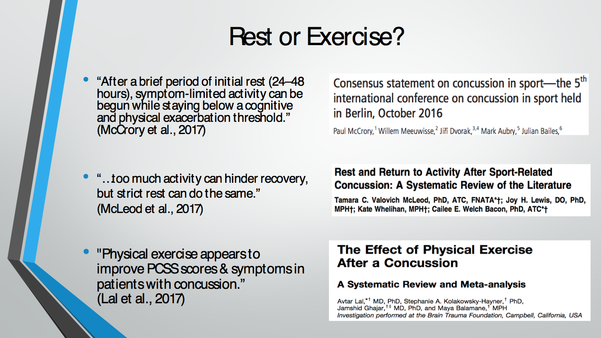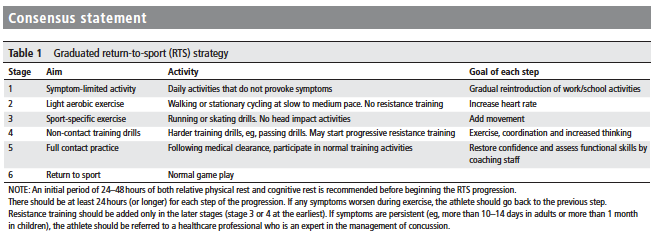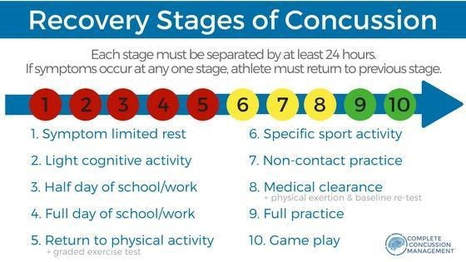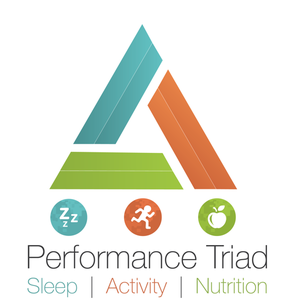Concussions, Part 3: Management & Return to Sport
Aug 23, 2018In the past two weeks, we defined concussions and the signs and symptoms to help identify one. In the final part of this series, we will cover my favorite part: Management and Return to Sport.
A study in 2014 showed that in 43.5% of concussion cases, the patient returned to sport too soon and in 44.7% of concussion cases, the patient returned to school too soon. That’s almost every other concussion. Come on, we can do better.
Management
Let’s build on my previous example about Billy Bob – It’s Saturday, the day after the playoff football game, where he had to sit out after receiving a concussion. He didn’t sleep much. He has a headache, some trouble concentrating, and light sensitivity. What should Billy Bob do next?
In the past, medical professionals would advise staying in a dark room and resting till all symptoms go away. But with more recent research, we see that being in these dark caves and shut off from the world can actually hinder your recovery.
For the first 24-48 hours, I do think rest is an important component. But what I would recommend is to try to go about your normal day within your capacity and don’t exceed your symptom threshold. What does this mean in English? Try to work with what you currently have and don’t make it worse. The goal here is to get back into your normal routine as fast, but safely, as possible.
Below is a slide from a recent presentation I gave in June at one of our National Physical Therapy Conferences regarding concussion management.

What this basically shows is that there’s a “sweet spot.” Too much rest and/or too much activity can make a concussion worse. We call this graded exposure. This is why understanding your threshold is important and using your symptoms to help guide the process.
To better understand graded exposure, I always like to give patients the pool analogy. You don’t want to be in the shallow end and you don’t want to be in the deep end. You want to be somewhere in the middle where you can start causing some stress on your body in order to create positive adaptations.
Now, there are many different routes that concussion management and treatment can go. This all depends on the clinical exam and the signs and symptoms the patient is experiencing. I’m going to keep this general in order to provide a 360 degree view of these different options:
- Exercise and exertional therapy – Baseline testing is important and allows us to make sure that symptoms don’t creep up when our bodies are being tested and stressed through exercise and sport.
- Cervical spine and manual therapy – Our necks can often get neglected, but it is very common for someone who has had a concussion to have neck issues. We can focus treatment on the spine and the surrounding muscles to decrease guarding and improve strength.
- Visual and vestibular rehab – These two systems have an integral role with how our balance system works. There are specific exercises and treatments we can perform to help get these systems in sync with our brain and nervous system.
These are all areas that Physical Therapists can address and help treat.
Return to Play
The Concussion in Sport Group (CISG) creates consensus statements for physicians and healthcare providers involved in athlete care every 4 years. Below outlines our most current model from their meeting in 2016 for the concussion return-to-play process.

I also like this integrated model by Complete Concussions below where they combine school and play together to give you a better overall picture of this process.

And, I would be remiss if I also didn’t mention 3 other aspects of health that are very important in this recovery process:

Our best recovery weapons are sleep and nutrition. We have to approach this from a holistic perspective if we expect to have the best outcomes.
I want this article and the rest of this concussion series to serve you as a resource. If you suspect you or someone you know has had a concussion, it’s important to make sure it gets addressed. Concussions are incredibly complex and it takes a team approach to make sure each person gets the best care.
At Athletes’ Potential, we have Doctors of Physical Therapy who are able to appropriately screen and assess for concussions as well as offer treatment for the management of this condition. If you have any questions, please call us at 470-355-2106.
Cheers,
Dr. Ravi, PT, DPT, CSCS
Let us help you figure out to live your best active life today!
Remember, Movement is Medicine!

